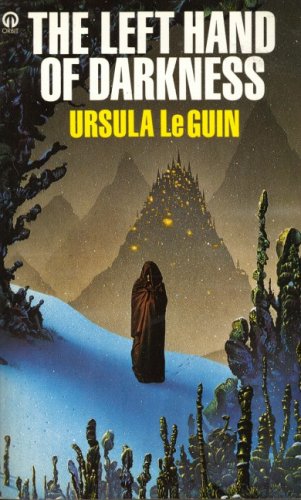Reviewed by celinenyx on
Neither man or woman, or perhaps both at the same time, these people gently challenge the preconceptions of Genly Ai, whose mission it is to act as an Envoy in Winter for a substantial collective of planets. Le Guin's sci-fi is the kind that is less interested in technological progress, and more in 'what if' scenarios that challenge societal notions that we take for granted. This focus on the human rather than the inanimate leads to fascinating reading. Where I found Asimov's characters to be flat and dull, Le Guin clearly paints hers with a more subtle and compassionate hand.
Every time I thought I would find myself bored with The Left Hand of Darkness, the narration was switched up, moving from Genly's point of view to a snippet of myth, or a chapter of narration by another character. It is a slow book, and its interest lies more in its nuances than it does in big action or dramatic interactions.
The book initially interested me because of the way it reflects on the gender binary. While this book might have been radical in 1969, I feel like that aspect did not stand the test of time. Genly's ideas on sex (having come from a 'bisexual' society) were rather amorphous and too broad to be truly questioned. He seems to equate femininity with weakness, lack of abstract thinking, with beating around the bush socially, and many other negative characteristics. I do hope that we have moved slightly beyond these preconceptions in the last seventy years (though probably not as much as I'd like) and the novel's questioning of these ideas wasn't thorough enough.
I would recommend The Left Hand of Darkness for lovers of science-fiction, light on the technology, heavy on the society and politics. Many of its elements are timeless, though its initial appeal might have faded over time.
---
Trigger warnings: violence, death of a friend, captivity in a concentration camp including a long journey in a truck, which is a thinly veiled stand-in for the trains that brought Jews to extermination camps in the Second World War. Low on gore.
Reading updates
- Started reading
- Finished reading
- 30 September, 2018: Reviewed
